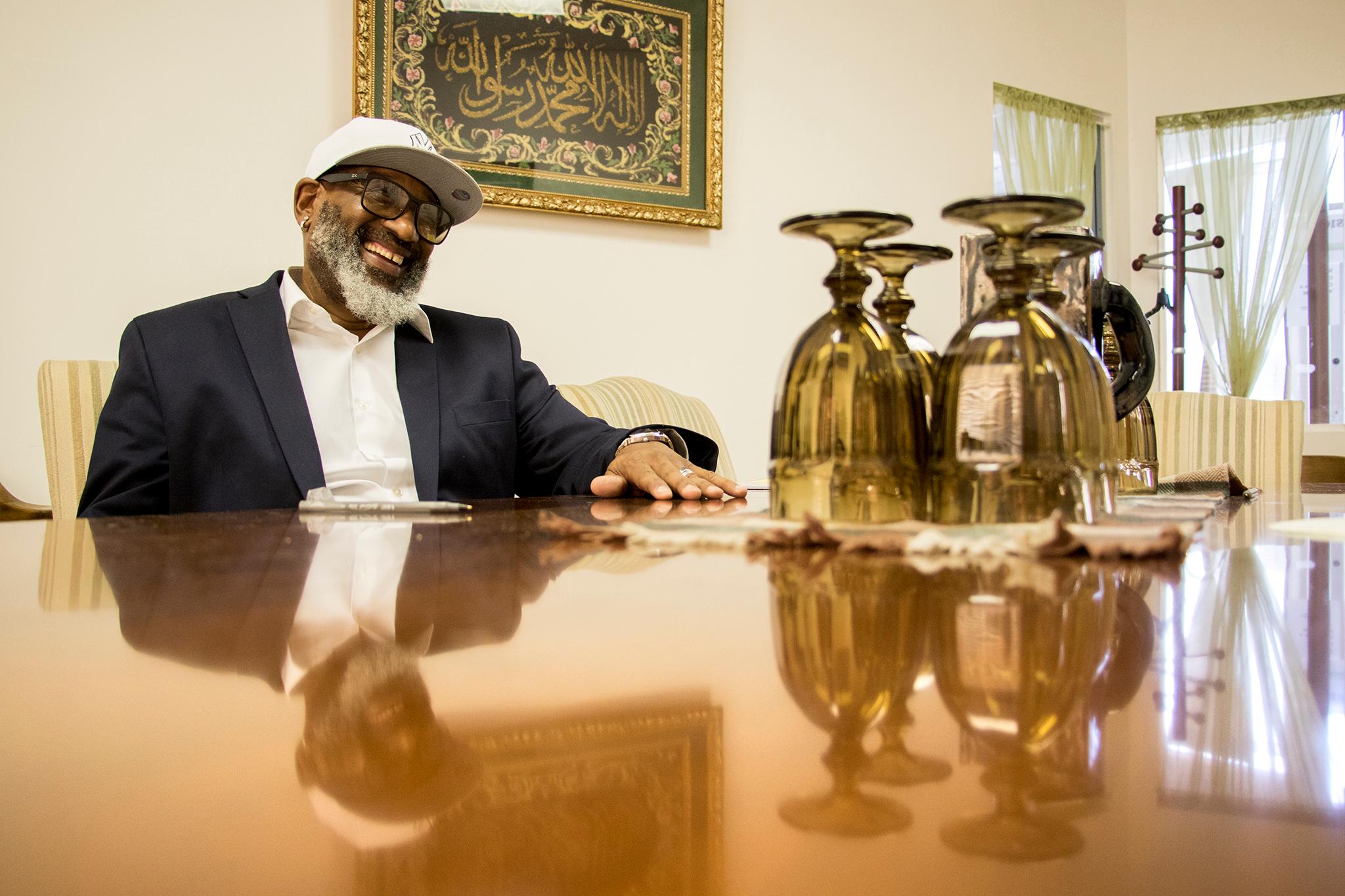Five hours of debate before the Aurora City Council and a contentious zoning hearing before that weren't enough.
Hassan A. Latif, a bitter battle over zoning won, wants to hear more from opponents of his vision for permanent supportive housing in Aurora.
His planned $13.5 million, 50-unit Providence at the Heights complex along busy Alameda Parkway near the Aurora Municipal Center would serve some of metropolitan Denver's neediest.
Latif founded Aurora's Second Chance Center six years ago to provide job training, mentoring and other support to help former prisoners like himself get on with their lives. He hopes some of his clients will be tenants in the housing project known as PATH. His team includes BlueLine Development, which worked with the St. Francis Center and St. John's Cathedral on the St. Francis Apartments, supportive housing for people experiencing homelessness in Capitol Hill.
It's been a week since the Aurora City Council narrowly overruled its own zoning commission to approve the site plan for PATH. In an interview Monday, Latif said his priorities now were completing the work needed to secure a building permit and holding a meeting to speak to people living near Elevation Christian Church, which has agreed to sell part of its parking lot for PATH.
People living near the church have stressed that they see the need to house the homeless and others Latif wants to help, but expressed concerns about how PATH will be managed and what it might mean for parking and home values in a neighborhood of sprawling low-rise apartment complexes and modest single-family homes. Opponents will be invited to the community meeting set for Oct. 4, Latif said.
"That's our next move," he said. "We are seriously concerned about our neighbors and want them to be engaged."
He added he wished he had started outreach earlier, noting his first community meeting on May 24 was half a year after the Colorado Housing and Finance Authority awarded his team the federal low-income tax credits that made PATH possible.
"There was a lot of time in which the narrative was driven by misinformation," Latif said.
Latif went before Aurora's planning and zoning commission in July with requests to be exempted from requirements on parking and the building's placement in relation to the street. The commission voted 6-0 to turn him down, though such requests are not unusual and often granted.
At the start of the Sept. 17 meeting at which the city council heard Latif's appeal of the zoning commission decision, Aurora Mayor Bob LeGare noted 73 people had asked to be heard and urged them to focus on the narrow exemption requests. But Ian Fletcher of the Metro Denver Homeless Initiative, speaking at the hearing in support of PATH, said it was about much more.
"It is about people," Fletcher said. "Specifically those who have histories of incarceration, disabilities or behavioral health challenges.
"Is this about a parking lot, or is this about people."
Several speakers who opposed the project said they were not against helping the homeless, but did not believe the site chosen for PATH was suitable. Mayor Pro Tem Marsha Berzins, whose Ward III includes the proposed PATH site, seemed particularly sensitive to those concerns.
"I am in favor of Second Chance and its mission. I have no problem with the work that you do," Berzins told Latif during the meeting before joining four fellow council members in voting against his request. Mayor LeGare was among the six members who favored the proposal in a vote taken early Tuesday.
A week later, several people living near the planned PATH site refused to be interviewed about it, perhaps an indicator tensions remain high. Jonetta Cobbin, who lives in an apartment complex that abuts the church parking lot, said she favored PATH.
"Everybody needs some place to live," she said, adding that basic need is becoming harder to fill as rents in the metro area continue to rise.
Latif initially planned PATH for the former prisoners he helps. That has changed as he has worked with funders and others to shape the project. The Aurora Mental Health Center, which will offer services at the complex, and others will choose the tenants. Latif, whose center will also serve PATH residents, said former prisoners are likely to be among the tenants because they often are among the vulnerable people the project seeks to help. They often find landlords unwilling to rent to them because of their past.
A man walking his dog near the church Monday refused to be interviewed, but said neighbors worried about who they might encounter on the streets once PATH was built.
Fear may be behind much of the talk about parking and street access, Latif said. He said he experienced such fear and skepticism when he started Second Chance. Six years later, the police commander in whose district Second Chance is located wrote Latif a letter of support for the city council.
The commander, Harry Glidden, called Second Chance a "good neighbor" and a model for the country whose goals for the formerly incarcerated coincided with those of the police.
"We both want them to never return to a life of crime," Glidden wrote.
Latif said: "You can't just logically explain people's fear away. It's very real to them. Our hope is that just what they see will adjust their fear over time."













